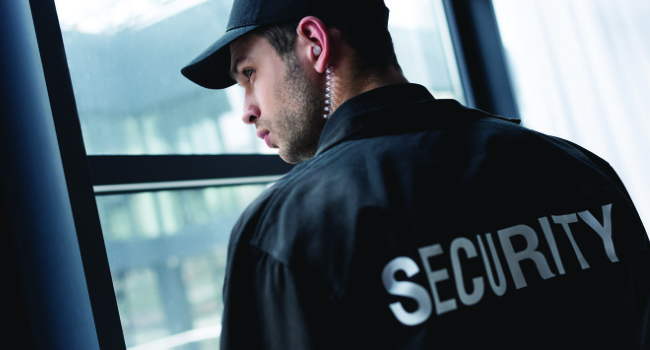
Securing the Future
CSOs grapple with emerging threats on multiple fronts
- By Rachelle Loyear
- Nov 30, 2023
In an increasingly turbulent world, chief security officers (CSOs) are facing a multitude of challenges that threaten the stability of businesses worldwide.
A new report commissioned by Allied Universal Security explores the global risk picture in the near future as seen by high-level security practitioners. The report, which is based on a survey of over 1,700 CSOs and security professionals, looked at the recent experiences of security events, their impacts, and the expectations of incidents expected in the coming year.
Threats and Hazards are Evolving
Economic unrest tops the list of concerns in the report, with 47% of CSOs anticipating it as the most significant security-impacting hazard in the coming year. This alarming statistic is indicative of the complex web of threats that companies now face, ranging from social unrest to disruptions in energy supplies and even the specter of war and political instability.
Climate change is anticipated to be the second most critical security-impacting hazard in the coming year, with 38% of CSOs voicing concerns. A notable 34% of CSOs have already experienced security hazards related to climate change. This multitude of hazards is driving both internal and external threats, leading to increasing anticipated security incidents.
When it comes to threats from external actors, fraud is predicted to be the most significant concern in the next 12 months, according to 25% of CSOs. Phishing and social engineering, along with theft of physical company property, closely follow. These threats were most prevalent in the past year and are expected to remain top concerns.
On the internal front, CSOs are increasingly alarmed with misuse of company resources or data ranking as the most common internal threat seen currently. This is followed closely by leaking sensitive information. The misuse of company resources or data is also the internal incident found as most likely to prompt companies to enhance their security over the coming months.
Unauthorized access to company resources, industrial espionage, and intellectual property theft are all expected to increase in the next year. The lure of financial gains may drive employees to share confidential information for personal benefit.
Notably, the nexus of these issues is economic instability and unrest, which is strongly correlated with revenue loss, making it a pressing concern, not only for CSOs, but for the CEOs and boards of directors of their companies as well. Economic instability has a profound impact on people's lives. Security experts note that inflation and higher living costs, coupled with displacement due to conflicts and climate events, may be contributing to an increase in security incidents, since these provide financial gain to the perpetrators.
CSOs Respond to Global Risk Trends
The security industry is facing a critical moment in its evolution. The confluence of economic instability and global tensions is occurring just as technology is advancing rapidly. Security professionals are grappling with the challenge of protecting both physical and cyber assets. Concerns revolve around the pace of technological change and the need to promptly address vulnerabilities.
To navigate this shifting landscape, CSOs have indicated that the security professional of the future must be tech-savvy, personable, and adept at de-escalation. They should possess a strong educational background and ideally be bilingual. Technology adeptness is also important and plays a crucial role in enhancing security operations, making them more efficient and productive.
The report revealed that recruitment of security personnel is expected to be a significant challenge in the next five years, and retaining experienced staff is even more daunting. Despite these difficulties, CSOs are demanding higher standards and skill levels in this new breed of security officer.
Implications for Security Program Planning
Adaptation and resilience are paramount for dealing with the global security risk environment. As CSOs strive to protect their organizations in an increasingly volatile world, they report that they are shifting to meet these new challenges. Plans include investments focused on advancing technologies for their programs and in developing new skills for security personnel to mitigate the growing security risks.
It is not only CSOs who will be grappling with this changing landscape. Security industry providers also needs to adapt to the changing landscape by developing new skills and training programs for security professionals. In addition, they must engage with and adopt new technologies, such as AI and machine learning, to stay on top of the ever-changing global risk landscape.
By investing in new technologies, developing new skills, and working together, the security industry – both practitioners and providers – can help to keep businesses and governments safe in the face of the growing security risks.
This article originally appeared in the November / December 2023 issue of Security Today.